Brain Fog and Body Dysmorphic Disorder: Can Nootropic Supplements Help?
Introduction
When you think of Body Dysmorphic Disorder (BDD), the first thing that comes to mind is usually distorted self-image — obsessing over perceived flaws, endless mirror-checking, and the emotional exhaustion of never feeling “good enough.”
But there’s another, quieter symptom many people with BDD describe: brain fog.
That heavy, cloudy, disconnected feeling. Difficulty focusing. The sense that your mind is moving through molasses. The thoughts that once raced with anxiety now feel dulled or trapped behind glass.
This isn’t coincidence. The same neurological and hormonal imbalances that fuel BDD — chronic stress, cortisol overload, low serotonin, dopamine dysregulation — also impair cognitive clarity.
The good news? Supporting brain health through nootropic supplements, proper nutrition, and nervous system regulation may help lift the fog, restore focus, and rebuild the connection between your mind and body 🌿✨.
Let’s dive deep into what causes brain fog in BDD, how it affects perception, and which natural compounds show promise for restoring clarity and calm.
Looking for supplements for This? Click here.
The Mental Fog of BDD: When Anxiety Turns Into Fatigue 🌫️

At its core, BDD is an anxiety disorder. The constant worry, self-criticism, and rumination overstimulate the nervous system until it burns out.
In the early stages, this manifests as hypervigilance — racing thoughts, compulsive checking, and bursts of adrenaline-fueled panic. But over time, the brain can’t sustain that level of activation. It begins to downshift as a defense mechanism.
That’s when brain fog sets in.
Instead of panic, you feel numb. Instead of alertness, you feel detached. Tasks that once seemed simple — reading, holding conversations, or concentrating — feel almost impossible.
Neurologically, this is the brain protecting itself from overstimulation. But for someone with BDD, it adds another layer of distress: feeling mentally “off” reinforces the fear that something is fundamentally wrong with you.
This fog isn’t laziness or weakness. It’s your brain saying, I’m exhausted.
How Stress and Cortisol Create Cognitive Cloudiness 🌡️
One of the biggest culprits behind brain fog in BDD is chronic stress.
When cortisol — the body’s main stress hormone — stays elevated for long periods, it begins to interfere with brain function.
Excess cortisol damages neurons in the hippocampus, the area responsible for memory and emotional regulation. It also reduces blood flow to the prefrontal cortex, which handles decision-making and focus.
The result? Trouble concentrating, emotional dysregulation, and the sense of being “disconnected” from your own thoughts.
High cortisol also increases inflammation and oxidative stress in the brain — two biochemical processes strongly linked to cognitive fatigue.
For people with BDD, this means every stressful moment — every mirror glance, every anxious thought — adds another drop of cortisol into the system, deepening the fog.
Neurotransmitters and Mental Clarity 🧠
Cognitive clarity depends on healthy communication between neurotransmitters — especially dopamine, serotonin, acetylcholine, and GABA.
Dopamine: The Motivation Messenger ⚡
Dopamine helps you feel alert, motivated, and capable of effort. Low dopamine leads to low drive, poor focus, and mental fatigue — all common in chronic BDD.
Serotonin: The Emotional Filter 🌸
Serotonin regulates mood and sensory input. When it’s low, emotional and visual processing become distorted, amplifying self-criticism and mental clutter.
Acetylcholine: The Learning Molecule 📚
Acetylcholine powers memory and concentration. Stress depletes it quickly, leading to sluggish thinking and forgetfulness.
GABA: The Brain’s Brake Pedal 🧘
GABA quiets overstimulated neurons. Without enough, your thoughts keep looping — even when you’re too tired to care.
Together, these chemicals create the symphony of cognitive clarity. When they fall out of tune, the result is fog.
The Brain–Body Disconnect in BDD 💭
People with BDD often describe feeling detached from their physical form — as if their mind and body exist on different planes.
Neuroscientifically, this “disembodiment” happens because chronic stress dulls interoception, the brain’s ability to sense internal bodily states.
When the nervous system is overloaded, your body stops sending reliable signals about hunger, rest, or emotional needs. You become less in your body — and more in your head.
But ironically, that mental withdrawal worsens body dysmorphia. You become less anchored in how you truly feel and more consumed by how you look.
Healing the brain fog in BDD isn’t just about thinking clearer — it’s about reuniting mind and body through biochemical and emotional repair.
What Are Nootropics? 🌿💊
Nootropics — often called “smart supplements” — are natural or synthetic compounds that enhance cognitive function. They improve focus, memory, energy, and mental resilience without overstimulation.
For people with BDD, the goal isn’t to chase productivity or superhuman focus — it’s to restore mental stability and clarity so the brain can process reality calmly and accurately again.
Below, we’ll explore some of the most promising natural nootropics for supporting cognition in BDD and anxiety-related conditions.
L-Theanine: Calm Focus 🍵
L-theanine, an amino acid found in green tea, promotes alpha brain waves — the same patterns seen in meditation.
It increases dopamine, serotonin, and GABA while reducing cortisol. That means it helps the brain achieve calm alertness — sharp enough to focus, relaxed enough to feel safe.
For someone with BDD-related fog, L-theanine can reduce anxiety-driven mental noise without sedation. It also pairs well with mild caffeine for a smoother, more balanced form of energy.
Rhodiola Rosea: The Anti-Burnout Adaptogen 🌄
Rhodiola is an adaptogen, meaning it helps the body adapt to stress.
It supports dopamine and serotonin regulation while stabilizing cortisol rhythms — keeping you energized without jitters.
For people with BDD who fluctuate between anxiety and exhaustion, rhodiola helps reestablish resilience. Over time, it may reduce fatigue, improve focus, and promote emotional steadiness.
Looking for supplements for This? Click here.
Lion’s Mane Mushroom: Neuroplasticity and Memory 🍄
Lion’s Mane is one of the most fascinating natural nootropics. It stimulates the production of nerve growth factor (NGF), which helps neurons repair and form new connections.
Chronic stress and BDD-related anxiety can shrink hippocampal neurons — but Lion’s Mane encourages regrowth, supporting sharper memory and mental recovery.
It’s also anti-inflammatory and may help protect against the oxidative stress that contributes to brain fog.
Omega-3 Fatty Acids: Brain Nutrition 🐟
The brain is made mostly of fat — and omega-3s (EPA and DHA) are the most important of them all.
Omega-3s improve communication between neurons, reduce inflammation, and support serotonin signaling. They’ve been shown to improve cognition and mood in people with anxiety, depression, and obsessive thought patterns.
For someone with BDD, omega-3 supplementation can stabilize emotional regulation and improve the clarity of perception — both visual and emotional.
Bacopa Monnieri: The Memory Calmer 🌿
Bacopa is an Ayurvedic herb known for enhancing memory and learning — but its true magic lies in balancing neurotransmitters.
It boosts serotonin and GABA while protecting neurons from cortisol damage. Unlike stimulants, it sharpens cognition gradually, building focus without tension.
People who use bacopa often describe feeling “clear but calm” — exactly the state BDD brains need.
Magnesium L-Threonate: Deep Brain Restoration ⚙️
Magnesium is critical for over 300 enzymatic reactions, including those that regulate brain chemistry.
The L-threonate form crosses the blood–brain barrier, directly increasing brain magnesium levels. This supports synaptic plasticity — the brain’s ability to learn, heal, and adapt.
It also calms glutamate overactivity, one of the main causes of sensory overload in BDD.
As brain magnesium rises, fog decreases and focus improves naturally.
N-Acetyl L-Tyrosine (NALT): Mental Energy Without Overstimulation ⚡
NALT is a bioavailable form of tyrosine, a precursor to dopamine and norepinephrine.
Under chronic stress, dopamine levels crash, leading to apathy and cognitive fatigue. NALT replenishes dopamine gently, restoring motivation and focus without anxiety.
It’s particularly useful for people who feel mentally drained or emotionally flat from constant self-criticism or performance pressure.
CoQ10: Cellular Energy and Brain Endurance 🔋

Coenzyme Q10 fuels mitochondria — the energy factories inside cells.
Stress depletes CoQ10, reducing the brain’s ability to generate clean energy. This can cause sluggish thinking and emotional burnout.
Supplementing CoQ10 restores mental endurance and can help reduce the exhaustion that often comes after BDD episodes or therapy work.
The Role of Inflammation in Brain Fog 🔥
Many people with chronic anxiety, trauma, or BDD have elevated inflammatory cytokines — signaling molecules that increase oxidative stress in the brain.
Inflammation slows neuron communication and impairs neurotransmitter production, leading to fatigue, irritability, and brain fog.
Antioxidant nootropics like curcumin (from turmeric) and alpha-lipoic acid combat this inflammation, helping neurons fire more efficiently and reducing mental heaviness.
Over time, lower inflammation equals clearer thoughts and greater emotional stability.
The Mind–Body Chemistry Connection 🧩
Brain fog in BDD isn’t “just in your head” — it’s the product of body-wide dysregulation.
When your nervous system is constantly flooded with stress hormones, your brain goes into energy conservation mode. The prefrontal cortex (responsible for self-awareness and focus) powers down, and the emotional brain takes over.
The goal of nootropic support isn’t to “power through” that fatigue — it’s to help the brain rebalance naturally.
By restoring neurotransmitter equilibrium and reducing inflammation, you give your nervous system permission to relax, which is when clarity returns.
Combining Nootropics With Lifestyle and Therapy 🧘
Supplements are most effective when paired with nervous system regulation and psychological healing.
Daily breathwork activates the parasympathetic system, lowering cortisol and improving prefrontal function.
Gentle movement (like yoga, swimming, or walking) enhances oxygen flow and boosts dopamine naturally.
Consistent meals with protein and omega-rich fats stabilize blood sugar, preventing cognitive crashes.
Mindfulness or therapy sessions retrain the brain to interpret body sensations safely, breaking the feedback loop of fear and obsession.
Each of these reinforces what nootropics are working to achieve — a calmer, more focused nervous system.
Want to try Breathwork? Click Here.
When to Be Cautious ⚠️
While most nootropics are safe, some can interact with medications or worsen anxiety if dosed improperly.
For example, high doses of tyrosine may overstimulate those sensitive to dopamine spikes. Adaptogens like rhodiola can be too energizing for those already wired.
It’s always best to start low, combine only a few at once, and consult a healthcare professional — especially if you’re taking SSRIs or other psychiatric medications.
Healing the Fog: A Step Toward Clarity 🌤️
Clearing brain fog in BDD isn’t just about thinking sharper — it’s about feeling more connected to reality.
When neurotransmitters rebalance and cortisol stabilizes, perception changes. The mind slows down enough to question distorted thoughts. The body begins to feel less like an enemy and more like a home.
Over time, that connection between mind and body — so fragile in BDD — strengthens. The reflection in the mirror becomes less about flaws and more about being.
That’s not just focus returning — it’s presence returning.
Final Thought 🌱
Brain fog is the body’s cry for balance. In BDD, it’s a sign that your nervous system has been running on fear for too long.
But the same brain that got stuck in fog can find its way out. Through mindful nutrition, nootropic support, and self-compassion, you can rebuild clarity — not by forcing your mind to speed up, but by allowing it to finally rest.
When calm returns, your thoughts clear. Your perception steadies. And slowly, you begin to see yourself — not through distortion, but through truth.
Looking for online therapy ? Click Here.
References
Phillips, K. A. (2009). Understanding Body Dysmorphic Disorder. Oxford University Press.
Feusner, J. D., et al. (2010). “Neural basis of body image distortion in BDD.” Archives of General Psychiatry, 67(2): 197–205.
Kennedy, D. O. (2016). “Cognitive nutrition and brain energy metabolism.” Frontiers in Neuroscience, 10: 23.
McEwen, B. S. (2007). “Stress, brain function, and neuroplasticity.” Annals of the New York Academy of Sciences, 1113: 111–124.
Panossian, A., & Wikman, G. (2010). “Adaptogens and neurochemical modulation.” Phytomedicine, 17(6): 481–493.
Lopresti, A. L., et al. (2019). “Ashwagandha and cortisol regulation.” Medicine (Baltimore), 98(37): e17186.
Hibbeln, J. R., et al. (2018). “Omega-3s and brain health.” Progress in Neuro-Psychopharmacology & Biological Psychiatry, 80: 109–117.
Nematollahi, A., et al. (2018). “Rhodiola rosea and mental fatigue.” Phytomedicine, 39: 1–10.
Sarter, M., & Paolone, G. (2011). “Acetylcholine and cognition.” Current Opinion in Neurobiology, 21(6): 832–838.
van der Kolk, B. A. (2014). The Body Keeps the Score. Viking.
Related Posts
-

Why Co-Dependency Feels Draining: Adrenal Fatigue and Supplements That Help
The adrenal glands are small but powerful organs that sit above your kidneys, acting as your body’s built-in stress managers. They produce hormones like cortisol and adrenaline that help regulate energy, mood, and resilience. When they’re overworked from chronic stress or emotional exhaustion, fatigue and imbalance follow. Supporting adrenal health naturally can help restore calm, energy, and hormonal balance. 🌿⚡
-

The Link Between Anxiety, Co-Dependency, and Natural Support
Anxiety feels like living in constant alert mode—your heart races, your thoughts loop, and your body can’t find peace. It’s the nervous system’s way of preparing for danger, even when none exists. Understanding what’s happening in your mind and body is the first step toward calming the storm and restoring balance. 🌿💫
-

Supplements That Support Dopamine and Serotonin in Co-Dependent Patterns
Serotonin is the neurotransmitter of calm, confidence, and contentment. When it’s balanced, you feel peaceful and emotionally grounded. When it’s low, anxiety, mood swings, and emotional dependence take over. By understanding serotonin’s role in emotional health—and how to support it naturally—you can rebuild inner stability, improve relationships, and cultivate lasting happiness from within. 🌞💫
-

How Emotional Exhaustion in Codependency Impacts the Nervous System
The nervous system is the body’s communication network, connecting the brain to every organ and muscle. It regulates stress, mood, and emotion through a delicate balance of electrical and chemical signals. When overwhelmed, it can become dysregulated—leading to fatigue, anxiety, and emotional imbalance. Understanding how to calm and strengthen the nervous system is key to healing from chronic stress and emotional burnout. ⚡🌿
-

What Is Co-Dependency? The Role of Brain Chemistry and Stress
Stress is more than a feeling—it’s a full-body experience that begins in the brain and ripples through every cell. When cortisol surges and the nervous system stays on alert, your body can’t rest or recover. Over time, this constant tension affects energy, focus, mood, and even immune health. Understanding stress chemistry is the first step toward breaking free from burnout and finding calm again. 🌿
-

Creating a Supplement Stack for Motivation, Energy, and Anti-Procrastination
Motivation is the fuel behind every meaningful achievement—but it’s not just about willpower. It’s a mix of mindset, brain chemistry, and momentum. When energy, focus, and purpose align, action feels natural instead of forced. Learn how to harness motivation as a daily state, not a fleeting feeling.
-

Supplements for Building Consistency and Reducing Chronic Procrastination
Biochemistry is the bridge between biology and chemistry—the science of life at the molecular level. It explains how nutrients, hormones, and neurotransmitters interact to create energy, thought, and emotion. From brain function to muscle movement, biochemistry reveals the invisible processes that sustain health, balance, and vitality.
-

GABA and Procrastination: Supporting Calm Focus for Productivity
GABA is the brain’s natural calming messenger—a neurotransmitter that helps slow mental overactivity and ease stress. When GABA levels drop, focus fades, anxiety rises, and procrastination becomes more likely. By supporting GABA through nutrition, lifestyle, and supplements, you can restore calm clarity, improve focus, and take action with steady, balanced energy.
-

Ashwagandha and Procrastination: Lowering Stress to Improve Action
Science is the language of curiosity and discovery. It helps us understand the hidden patterns behind life, energy, and the universe. Through experimentation and critical thinking, science connects imagination to evidence—turning questions into knowledge. Whether through microscopes, molecules, or minds at work, science represents our endless pursuit of truth and innovation.
-

Neurotransmitters and Motivation: Supplements That Support Drive and Focus
Supplements can do more than boost physical health—they can also enhance mental clarity, focus, and motivation. Nutrients like omega-3s, magnesium, B vitamins, and adaptogens help balance neurotransmitters, stabilize mood, and support brain energy. When combined with good sleep, nutrition, and mindful habits, they can transform how your brain performs under stress.
-

How Stress Hormones Like Cortisol Fuel Procrastination (and What Helps)
Blood sugar isn’t just about physical health—it directly impacts focus, mood, and motivation. When glucose levels spike and crash, energy and attention do the same, fueling procrastination and brain fog. Learning how to stabilize blood sugar through balanced meals, mindful habits, and key nutrients helps keep your mind steady, focused, and ready to act.
-

Brain Fog and Procrastination: Supplements for Mental Clarity
Brain fog can turn even simple tasks into mental hurdles. When your thoughts feel slow and unclear, procrastination often follows—making focus and productivity seem impossible. This article explores the biochemical and lifestyle causes of brain fog and reveals the most effective supplements for restoring mental clarity, focus, and sustained energy.
-

The Link Between Low Energy and Procrastination: Can Supplements Help?
Neurochemistry shapes how we think, feel, and act. When neurotransmitters like dopamine, serotonin, and GABA fall out of balance, it can lead to fatigue, anxiety, or lack of motivation—fueling procrastination and low mood. Understanding the brain’s chemical communication system helps us find ways to restore focus, calm, and emotional stability through nutrition, mindfulness, and targeted supplements.
-

Why Do We Procrastinate? The Role of Dopamine and Supplements That Support It
Dopamine is the brain’s motivation messenger—the chemical that fuels focus, reward, and drive. When dopamine levels drop, even simple tasks can feel impossible to start. This article explores how dopamine shapes procrastination, motivation, and mental energy, along with natural supplements and daily habits that help restore balance and get things done.
-

Phosphatidylserine and Stress Reduction for People with BDD
Stress is more than a mental state—it’s a full-body experience that affects hormones, brain chemistry, and emotional balance. For people with Body Dysmorphic Disorder (BDD), constant tension and worry about appearance can overload the nervous system. Learning how stress works and finding ways to calm it is key to breaking the cycle of anxiety and self-criticism.
-

How Antioxidants Like Vitamin C & E Support Mental Health in BDD
Antioxidants are the body’s natural defense against stress and inflammation. For people with Body Dysmorphic Disorder (BDD), oxidative stress can worsen fatigue, anxiety, and emotional imbalance. Nutrients like Vitamin C and E help protect brain cells, boost neurotransmitter function, and support a calmer, clearer mindset—building a stronger foundation for recovery.
-

Ginkgo Biloba and Memory Support for BDD Recovery
Emotional regulation is the foundation of healing from Body Dysmorphic Disorder (BDD). When the nervous system stays in constant overdrive, even small stressors can trigger self-critical spirals. Learning to calm emotional reactivity helps restore clarity, confidence, and a sense of inner balance. By blending mindfulness, nervous system support, and self-compassion, you can retrain your brain to respond—not react—to emotion.
-

Alpha GPC and Cognitive Function in Body Dysmorphic Disorder
Mental fatigue can feel like your brain has hit a wall—thoughts slow down, focus fades, and motivation disappears. For people with Body Dysmorphic Disorder (BDD), chronic overthinking, emotional stress, and constant self-evaluation can deplete mental energy even further. Understanding what causes this cognitive exhaustion is the first step toward recovery—through rest, balanced nutrition, and targeted brain-supporting supplements.
-

N-Acetyl L-Tyrosine and BDD: Supporting Mental Clarity
Chronic stress doesn’t just affect your mood—it reshapes your brain chemistry, weakens focus, and fuels the obsessive thought loops common in Body Dysmorphic Disorder (BDD). Over time, constant cortisol elevation drains mental energy and emotional balance. Learning to recognize and manage chronic stress is essential to restoring mental clarity, self-compassion, and resilience.
-

Chamomile and Lavender for Calming Obsessive Body Image Thoughts
The nervous system is the command center of our emotional and physical world—and in Body Dysmorphic Disorder (BDD), it often operates in overdrive. Understanding how the brain and body communicate under stress reveals why intrusive thoughts feel uncontrollable. Learning to regulate the nervous system through calm practices, nutrition, and supplements helps restore inner balance and emotional safety.
-

Adaptogens for Body Dysmorphic Disorder: Rhodiola, Ginseng, and More
Rhodiola rosea, often called the “golden root,” is an adaptogenic herb renowned for boosting stress resilience and mental endurance. For individuals with Body Dysmorphic Disorder (BDD), Rhodiola may help reduce fatigue, regulate cortisol, and enhance emotional balance. By supporting both mind and body, this powerful plant promotes calm focus, improved mood, and renewed energy to face daily challenges.
-

B Vitamins for Stress Resilience in BDD: Rebuilding Calm from Within
Biochemistry is at the heart of every thought, emotion, and reaction we experience. In Body Dysmorphic Disorder (BDD), chemical imbalances in neurotransmitters like serotonin, dopamine, and GABA can amplify stress and distort self-perception. Understanding the biochemistry behind mood and stress regulation offers a path toward healing—bridging the gap between emotional experience and the body’s molecular balance.
-

Melatonin and Body Dysmorphic Disorder: Restoring Healthy Sleep Patterns
Melatonin, the body’s natural sleep hormone, plays a vital role in helping people with Body Dysmorphic Disorder (BDD) restore healthy sleep cycles. When anxiety and obsessive thinking interfere with rest, melatonin levels often drop, leading to more emotional reactivity and distorted self-perception. This article explores how melatonin works, why BDD disrupts it, and how natural supplementation—combined with mindful routines—can help the brain and body finally find calm at night.
-

Sleep Struggles with BDD: Supplements for Rest and Recovery
When you’re living with Body Dysmorphic Disorder (BDD), restful sleep can feel impossible—but the right supplements can help reset your body’s natural rhythm. From magnesium and L-theanine to 5-HTP and ashwagandha, these nutrients support relaxation, lower cortisol, and enhance melatonin production. This article explores how supplements can calm the mind, ease nighttime anxiety, and promote true restorative sleep for emotional and physical recovery.
-

5-HTP and Serotonin Balance: Could It Help with Body Dysmorphic Disorder?
Anxiety can feel like a storm inside the mind—restless, overwhelming, and hard to control. In people with Body Dysmorphic Disorder (BDD), anxiety often fuels obsessive thoughts and self-criticism, creating a painful cycle of worry and self-doubt. This article explores the biological roots of anxiety, the role of neurotransmitters like serotonin and GABA, and how natural strategies such as mindfulness, supplements, and nervous system regulation can restore calm and mental clarity.
-

Can Ashwagandha Help Ease Stress and Anxiety in Body Dysmorphic Disorder?
Neurotransmitters like serotonin, dopamine, GABA, and acetylcholine are the chemical messengers that shape how we think, feel, and react to stress. In Body Dysmorphic Disorder (BDD), imbalances in these neurotransmitters can amplify anxiety, obsessive thinking, and emotional distress. This article explores how restoring healthy brain chemistry through nutrition, supplements, and mindfulness can help bring clarity, calm, and emotional stability.
-

L-Theanine for BDD: Finding Calm in the Mind
Neurochemistry plays a central role in how we think, feel, and see ourselves. For those living with Body Dysmorphic Disorder (BDD), imbalances in neurotransmitters like serotonin, dopamine, and GABA can intensify anxiety, obsessive thoughts, and emotional distress. This article explores how regulating brain chemistry through supplements, mindfulness, and lifestyle changes can bring the nervous system back into harmony and restore inner calm.
-

Omega-3 Fatty Acids and Body Image Disorders: Supporting Emotional Health
Omega-3 fatty acids do far more than support heart health—they nourish the brain, stabilize mood, and may ease the emotional turbulence tied to body image disorders like BDD. This in-depth article explores how omega-3s regulate serotonin, dopamine, and inflammation, helping individuals reduce obsessive thoughts and rebuild self-acceptance. It also connects nutrition to therapy, mindfulness, and nervous system balance for holistic emotional healing.
-

Magnesium and BDD: Calming an Overactive Nervous System
Magnesium plays a crucial role in calming an overactive nervous system—something people with Body Dysmorphic Disorder (BDD) struggle with daily. This article explores how magnesium supports relaxation, emotional regulation, and stress reduction while diving into the science behind its connection to brain chemistry. It also examines how combining magnesium supplementation with therapy and breathwork can help rebalance the body’s stress response, reduce obsessive thought patterns, and promote lasting nervous system calm.
-

The Gut-Brain Axis and BDD: Why Probiotics Might Matter
The gut and brain are constantly in conversation — and that dialogue may shape how you experience Body Dysmorphic Disorder. By nurturing your microbiome with probiotics, prebiotics, and gut-healing nutrients, you can help rebalance serotonin, calm anxiety, and restore emotional stability from within 🧠🦠.
-

How Stress Hormones Like Cortisol May Worsen Body Dysmorphic Disorder
Chronic stress floods the brain with cortisol — the hormone that keeps you on high alert. In Body Dysmorphic Disorder, this chemical overdrive fuels anxiety, distorts self-image, and traps the body in survival mode. Calming cortisol helps restore both peace and perspective 🌿🧠.
-

The Role of Neurotransmitters in BDD—and How Supplements May Help
Neurotransmitters like serotonin, dopamine, glutamate, and GABA shape how people with Body Dysmorphic Disorder perceive themselves. When these brain messengers fall out of balance, perception distorts — but targeted supplements can help restore calm, focus, and emotional regulation 🧠🌿.
-

What Is Body Dysmorphic Disorder? A Deeper Look at the Mind-Body Connection
Body Dysmorphic Disorder (BDD) isn’t just about appearance — it’s about perception. When brain chemistry, trauma, and stress distort self-image, the mind begins to see flaws that aren’t truly there. Healing starts by calming the nervous system and reconnecting mind and body 🪞🧠.
-
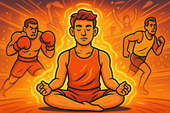
Keeping Calm in Competitive Sports: How to Train Your Mind, Body, and Chemistry for Peak Performance
Competitive pressure can overwhelm even the strongest athletes — but calm is trainable. By combining supplements like magnesium, L-theanine, and adaptogens with breathwork and mindset training, you can stay focused, balanced, and in control under any level of stress 🧠🏅.
-
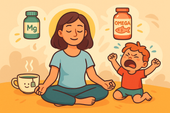
Supplements for Parents Facing Toddler Tantrums: Staying Calm When Little Emotions Run Wild
Toddler tantrums can drain even the most loving parent — but your calm is powerful. With the right supplements like magnesium, L-theanine, and ashwagandha supporting your nervous system, you can stay patient, grounded, and kind, even when emotions run high 🧸🌿.
-

Workplace Stress and Anger Management Support
Workplace stress can quickly turn into frustration — but calm is a skill you can train. By combining supplements like magnesium, L-theanine, and adaptogens with breathwork and mindset tools, you can stay focused, patient, and emotionally grounded no matter how intense the office gets 💼🌿.
-

How to Stay Patient With Family During Stressful Holidays
Holiday gatherings can stir up old stress and test your patience — but calm is possible. With nervous system support from magnesium, L-theanine, and adaptogens, plus mindful breathing and clear boundaries, you can stay centered, kind, and grounded even when family chaos unfolds 🎄💞.
-

Supplements to Keep Calm During Traffic Jams
Getting stuck in traffic doesn’t have to ruin your mood. With calming supplements like magnesium, L-theanine, and ashwagandha, you can train your body to stay relaxed and focused behind the wheel — turning gridlock into a moment of grounded patience 🚗🌿.
-
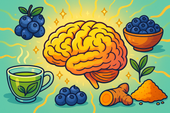
The Role of Antioxidants in Healing Brain Stress from Dissociation
Antioxidants protect the brain from the oxidative stress caused by trauma and dissociation. By neutralizing free radicals and supporting mitochondrial recovery, they help restore clarity, focus, and emotional balance — allowing the mind to heal at the cellular level 🌿🧠.
-
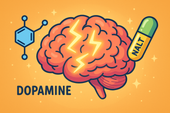
N-Acetyl L-Tyrosine (NALT) for Supporting Mental Clarity
N-Acetyl L-Tyrosine (NALT) fuels dopamine production — the neurotransmitter of focus and motivation. By supporting brain chemistry during stress, NALT helps restore mental clarity, energy, and alertness, making it easier to think clearly and feel present again ⚡🧠.
-

How Ginseng May Improve Focus and Energy in Dissociation
Ginseng helps combat the mental fatigue and fog that often come with dissociation. By supporting mitochondrial energy, balancing neurotransmitters, and regulating cortisol, it gently restores focus, motivation, and emotional presence — helping the mind reconnect with clarity and strength 🌿⚡.
-
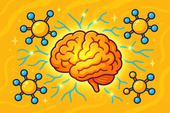
Phosphatidylserine and Dissociation: Supporting Cognitive Function
Phosphatidylserine helps calm the stress response by balancing cortisol, the body’s primary stress hormone. By lowering cortisol spikes, it protects memory, focus, and emotional stability — restoring clarity and mental presence for those struggling with dissociation 🧠🌿.
-
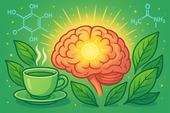
Can Green Tea Extract Help with Dissociative Brain Fog?
Green tea extract may help lift dissociative brain fog by supporting neurotransmitter balance, reducing inflammation, and enhancing energy at the cellular level. With its key compounds EGCG and L-theanine, it promotes calm focus, clarity, and emotional presence — helping you feel more alert and grounded 🍵🧠.
-
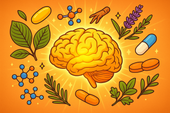
Building a Natural Supplement Stack for Dissociation Support
Building a supplement stack for dissociation means nourishing the brain and body back into communication. By supporting neurotransmitters, gut health, and energy balance through nutrients like magnesium, omega-3s, curcumin, and probiotics, you can help restore clarity, calm, and connection — one layer at a time 🌿🧠.
-

Chamomile and Lavender for Dissociative Anxiety Relief
Chamomile and lavender work together to calm dissociative anxiety by soothing the nervous system and restoring emotional safety. Their natural compounds balance cortisol, enhance GABA activity, and activate the vagus nerve — helping you feel grounded, connected, and at peace again 🌿💜.
-
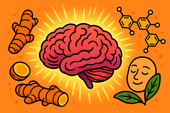
Curcumin for Inflammation and Mental Clarity in Dissociation
Curcumin, the golden compound in turmeric, does more than fight inflammation — it helps clear the mental fog often tied to dissociation. By calming neuroinflammation, balancing neurotransmitters, and supporting mitochondrial energy, curcumin can restore mental clarity, focus, and emotional presence 🌿🧠.
-
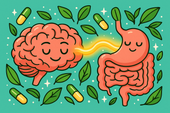
Probiotics and Dissociation: Exploring the Gut–Brain Axis
The gut–brain axis plays a vital role in emotional awareness and presence. When the microbiome is balanced, it supports serotonin production, vagus nerve activity, and calm focus. Probiotics help repair this connection — restoring safety, clarity, and the feeling of truly being in your body again 🌿🧠.
-
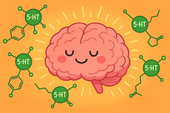
5-HTP for Dissociation: Supporting Serotonin and Emotional Stability
5-HTP helps bridge the gap between emotional numbness and stability by supporting serotonin production — the neurotransmitter that shapes mood, sleep, and sensory awareness. For people experiencing dissociation, 5-HTP may gently restore connection, presence, and emotional balance from the inside out 🌿🧠.
-
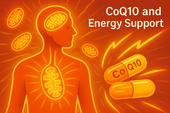
CoQ10 and Energy Support for People with Dissociation
Chronic dissociation often leaves the body running on empty — tired, foggy, and disconnected. CoQ10 helps recharge that system at the cellular level by restoring mitochondrial energy, reducing oxidative stress, and supporting the brain’s capacity to stay present. It’s energy medicine for both body and mind ⚡🧠.

















































